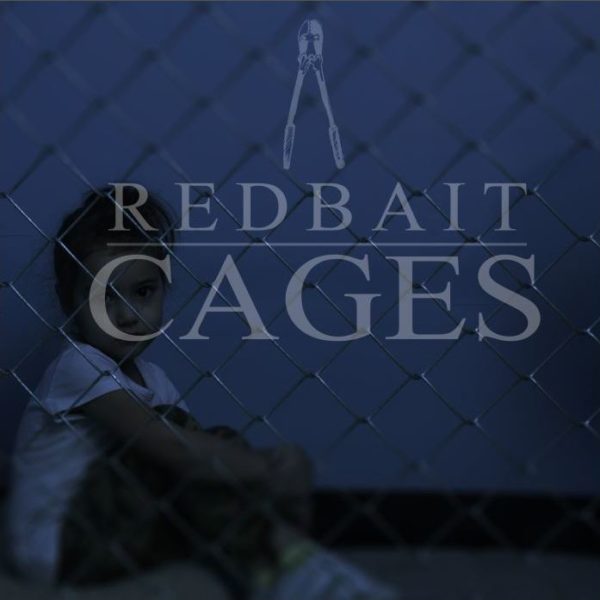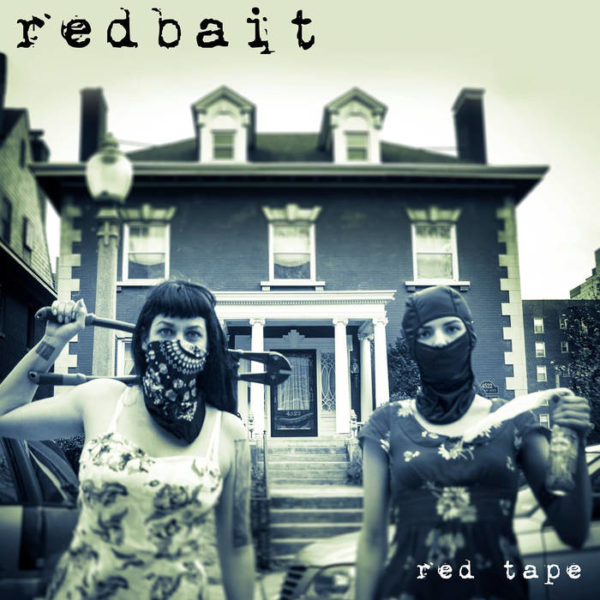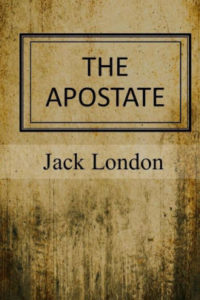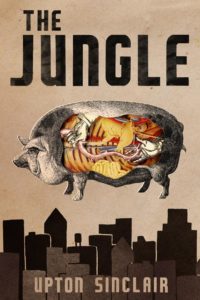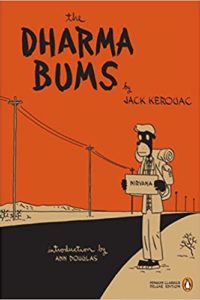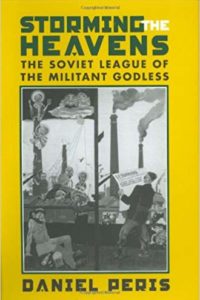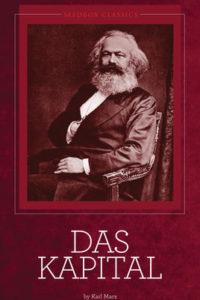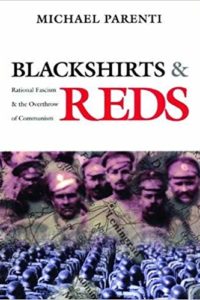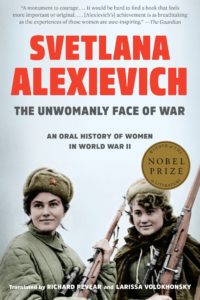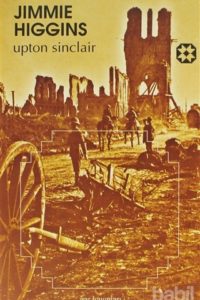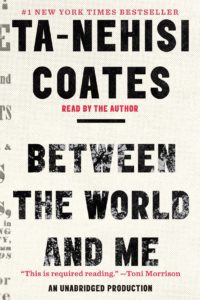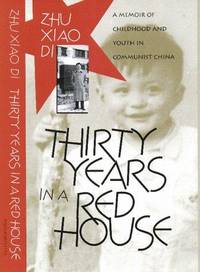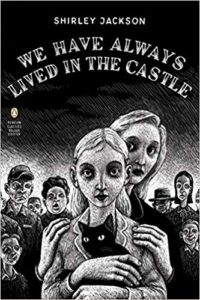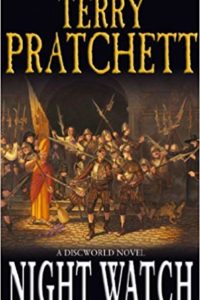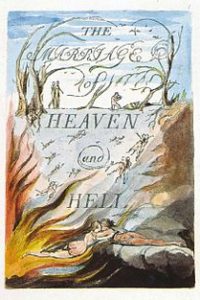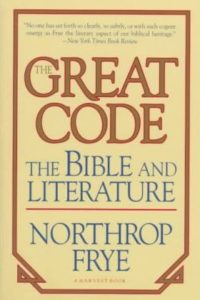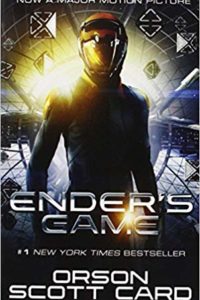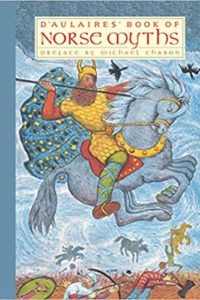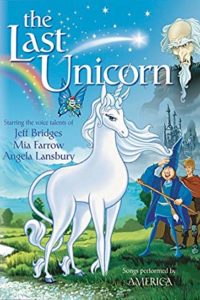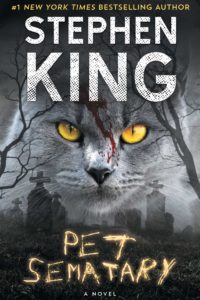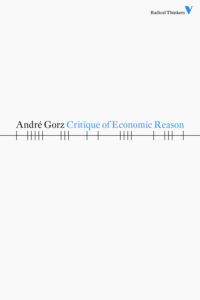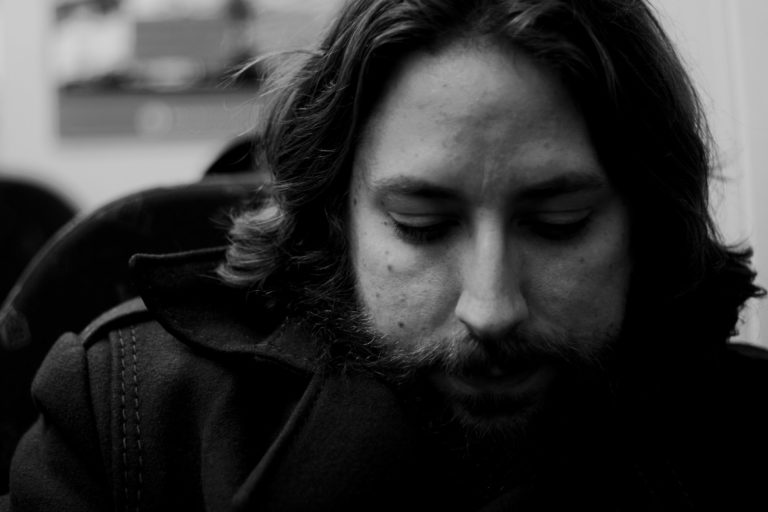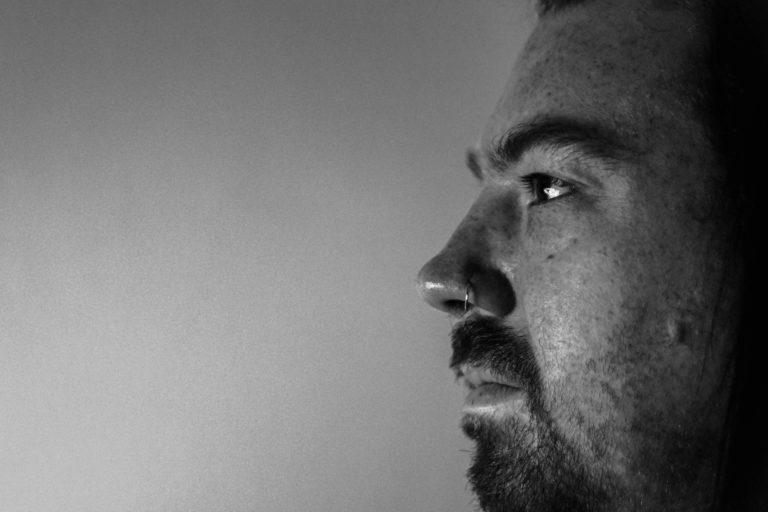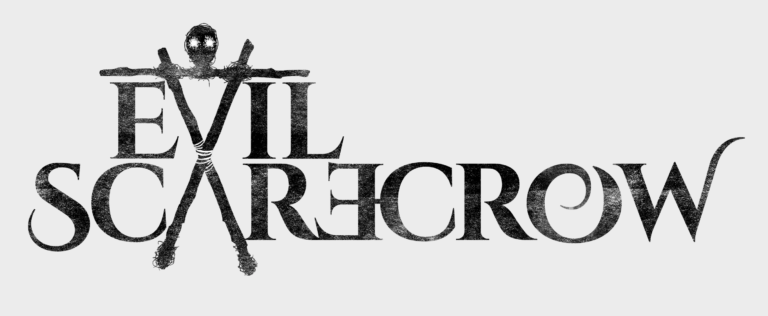Redbait is the sound of activism. This is a band that came together not through music but through community organisation work in St. Louis, Missouri, and listening to their ‘Midwestern proletarian crust’ is like being at a protest rally. The campaigning fury of their first EP, 2018’s Red Tape, brought them to the forefront of the new underground, and with new EP ‘Cages’ (to be released on 14th June from New Age Records ) they have honed their sound further, weaving diverse musical influences into a crust punk core. Redbait’s music is explicitly feminist, anti-fascist, anti-capitalist, anti-racist, anti-cop; but they don’t just make pronouncements, they act upon them and inspire others to do the same. I could go on all day about why Redbait and bands like them are important, but instead I’ll let Nicholas (bass) and Will (guitar) tell you about the books that have influenced them.
Photo: Rebecca Redbait
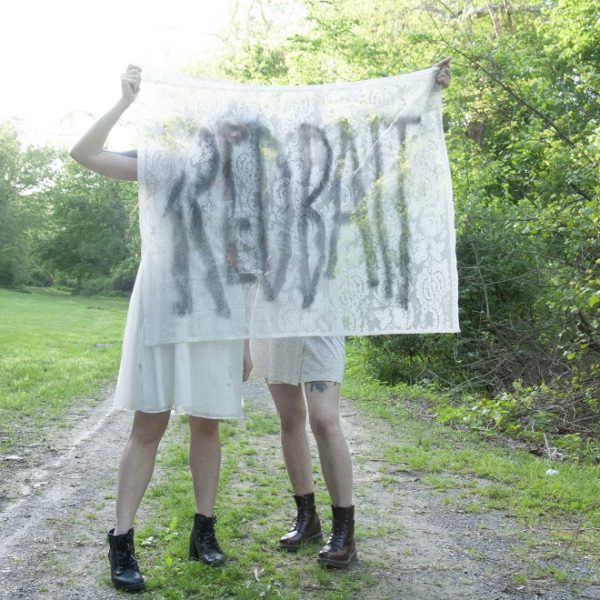
Nicholas James (bass):
- The Apostate (San Francisco Stories) by Jack London. This was the first book I can remember making an impression on me. My mother read it to me when I was about age six. In her later years, she became a born-again Christian conservative in hopes of salvation for a self-defense murder she committed in her 20s. However, in my youth she was quite critical of capitalism and longed for social justice. We belonged to an idyllic farm family, and I was shaken by the thought of the protagonist (Johnny) working in a factory. At six, I was gracious for not living in those conditions, thus it was my introduction to understanding my status of privilege.
- The Jungle by Upton Sinclair. My mother introduced this book to me as a child, as well. It was my first introduction to the wholesale exploitation of animals. On the farm, we had chickens, and I understood the relationship between the animal and what I was fed. However, I had not considered the scale of the destruction of animals in the name of calories or Cold War politics until then. The neighbor’s farms had cows…maybe three or four…spending their days in lush pastures.The disconnect between cruelty and capitalism is an easy one in rural America. In my twenties, I re-read The Jungle. This time, the working conditions were the fuel for my nightmares.
- The Dharma Bums by Jack Kerouac. An ex-girlfriend and I took turns reading this to each other on a cross-country drive. I was 23. I left Illinois as an atheist, and arrived in California as an accidental Buddhist. Before reading, I had theories on the “creation” of the universe and its scientific make-up, as well as crushing depression and insecurity. Kerouac answered none of these questions, but this book pointed me in the direction of some studying that bettered my life. Most of my circles have not contained many Buddhists, which has resulted in some ridicule. Regardless, this book led me to change my life for the better.
- Das Kapital by Karl Marx. The Manifesto did not move me, as I was a Communist already. What I learned from reading Kapital changed every decision of my life after. Post-read, I cannot help but see every object as labor, materials, and value. As a Union representative, I conducted trainings for stewards and bargaining committees dealing with value, materialism, and class struggle. I cannot say that Kapital is for everyone, but the information therein is universally beneficial.
- Storming the Heavens by Daniel Peris. This history of the Soviet League of the Militant Godless (1925-1947) taught me an important lesson in organizing: no matter how just a cause or necessary an organization, an ingrained destructive social structure or behavior cannot be eradicated without something to replace it.
6. Thirty Years in a Red House by Zhu Xiao Di. The narrator, the child of two Communist revolutionaries turned local civil servants, gives a first person account of Chinese life post-Civil War, through the Cultural Revolution, and emigration to the USA. Zhu wrote a uniquely honest portrayal of events…which was shocking. It’s a political memoir that neither condemns, desparages, nor sells an ideology. I realized that “historians” like Solzhenitsyn and Kati Marton simply were not honest, because they were trying to sell something. This is going to sound harsh, but have you ever met a Cuban-American that does not disparage the post-1959 Cuban government? An incentive exists to be a Cuban anti-Communist: the Cuban Adjustment Act. Truly, this book led me to be critical of all historical information (from friend and foe), and try to coalesce some truth from the overlap.
7. Jimmie Higgins by Upton Sinclair. I heard a comrade once use the phrase “Jimmie Higgins work” while setting up tables at a fundraiser. After doing a bit of research, I found a novella of parables from 1919 by Upton Sinclair. Each chapter is devoted to behind-the-scenes situations found in political and labor organizing that the protagonist (Higgins) must address. Higgins is not the public speaker. He is the one who builds the podium and passes out leaflets while someone else is speaking. Many organizers and politicians dream of leading throngs of the like-minded to some victory, but in reality it is the ancillary members and volunteers that prove far more important.
8. Blackshirts and Reds by Michael Parenti. Parenti does an excellent job of explaining why fascism recurs, as well as the social difficulties of sustaining the Socialist Republics of Eastern Europe. To be honest, this book has helped me win nearly every debate since, in regards to the subject of human nature and the response to revolution.
9. Between the World and Me by Ta-Nehisi Coates. When I worked for the Service Employees International Union, an incoming president gave all staff members a copy for the holidays. A little over a year had passed since the murder of Michael Brown. Ferguson, and the city of Saint Louis overall, still had a wide open wound. Before Ferguson, i was anti-racist, but i did not know what racism was until those events. The media response, reactionary counter-protests, police accountability (or lack thereof), municipal intimidation of citizens, and the constant attempts to usurp the moment for individual gain were eye-opening. However, the greatest lessons came from the Black citizens. Every Black person I spoke to knew an immediate someone that died of suspicious circumstances involving the police. I then was told about the “be twice as good” talk Black parents have with their children. Coates does an incredible job explaining the “twice as good” environment in a way that a non-POC can understand. It’s a short read. There is no valid reason not to read it.
10. The Unwomanly Face of War by Svetlana Alexievich. By far the most difficult read of my life. It took nearly a year, as I could only emotionally withstand reading a few pages every few days. The lesson for me was that “making space” in a struggle for women is simply not enough. We, as males, must also step back after the fight. Most orgs, no matter how progressive, still have predominantly male leadership. That leadership must be inclusive of women (or non-males). Women must have access to controlling their own narrative. No excuses. “Girls to the front!”.
Will Jameson (guitar):
1. D’Aulaire’s Book of Norse Myths. This was an early childhood find that I checked out from there library over and over. It’s a gorgeously illustrated collection of the greatest hits of Norse mythology, and along with the sister volume of Greek myths it sparked a lifelong interest in mythology, folklore, and eventually theology. Both books are fantastic but the Norse one gets the nod because it was also early prep for being a black metal fan.
2. Orson Scott Card – Ender’s Game. This is a deeply problematic book written by a virulent homophobe, but I probably read it a hundred times before really becoming aware of that stuff. It has a lot to say, for better or worse about war (anti-), adolescence (sucks), and eugenics (kinda…pro?), but the thing that really stuck with me about Ender’s Game and its sequels is the way it thinks about communication, about whether it’s possible to communicate with the truly other, and what happens when we realize (or decide) that it’s not possible. This was also my first experience in realizing that a piece of media I love was made by a reprehensible person, a rite of passage for any modern metal fan.
3. Terry Pratchett – Night Watch. It could really be any of Pratchett’s books on this list but this is the one I go back to the most. Maybe a weird choice, since on the surface it’s about a bunch of cops, but it’s also about revolution, what it’s for and I think about what you can afford to sacrifice in the process of revolution and still have something worthwhile when you’re done. I found this long before I was a leftist, but re-reads have been rewarding; there’s some decent class analysis and an understanding of how cities function and how to disrupt them that’s worthwhile for any activist, but the heart of the book is the idea that we do politics, revolution, or whatever to take care of people, if it’s not for that purpose it’s useless or worse.
4. William Blake – Marriage of Heaven and Hell. This was my entry point for William Blake’s work (thanks Ulver) and remains my favorite. It’s pretty accessible for Blake, a fun combination of his weirdo mysticism with an extended diss track about Emmanuel Swedenborg, and althought I was politically very stupid when I first read it, Blake’s kind of dialectical ideas of contraries and of depolarizing good and evil, reason and energy, were a huge influence. It’s a visually stunning work and Blake’s language is joyfully obscure and weird to me. Like fellow fan Maurice Sendak said, “I don’t know what the hell he’s talking about, but I love him.”
5. Northrop Frye – The Great Code. This is Frye’s attempt at doing literary criticism on the Bible, starting from the premise that it is or that it has influenced society as a finished, unified work, as opposed to the more source critical archeological kind of scholarship. I think he undersells that value of source criticism in understanding why the Bible is broadly consistent in narrative and image, but his general method of looking for meaning the final, received form of a work and acknowledging how even that final form continues to change as it’s interpreted by new readers (Milton, Shakespeare, Blake in this case) was useful to me. I don’t agree with a lot of what Frye has to say in this one, but it helped build a rubric for consuming media that still serves pretty well today.
6. Stephen King – Pet Sematary. I think this was the first Stephen King book I read, and it’s still the best example of the thing that he does really well, which is to set up some traditional horror element that’s kinda scary in places but that’s really just a scaffolding for an interpersonal arc that’s truly horrifying. In this case, the monkey’s paw style cursed burial ground is a neat idea but it’s mostly just a vehicle for King to drive his own anxieties about being a parent to the logical conclusion and way beyond. It’s about grief more than anything else, and what we’d do to avoid it if we could. I don’t have kids but I have cats and “He’s my cat! He’s not God’s cat! Let God have his own cat!” is pretty relatable.
7. Karl Marx – Capital. Maybe an obvious one, but it had a huge impact. I had already been radicalized a bit by a soul-crushing retail management job and Michael Brown’s murder, and I’d read a few introductory leftist books to try to make sense of what was happening around me, so by the time I started Capital it was less revelatory and more like every page was an articulation and affirmation of what I newly understood to be true. It took months to finish it. it’s an awful grind in parts, but it was a watershed read for me in terms of understanding and interacting with the world and it’s been an extremely useful scaffolding for subsequent reading, especially the bits about primitive accumulation and enclosure.
8. Shirley Jackson – We Have Always Lived in the Castle. Shirley Jackson’s influence on Stephen King can’t be overstated, and you can trace a clear line from a book like Pet Sematary back to We Have Always Lived In the Castle. There’s a little bit magic, some horror that has mostly already happened off screen, and an enormous sense of tension and dread that’s hung on domestic drama, agoraphobia, and social anxiety, all of which were very real parts of Jackson’s life. What really makes this one resonate for me is that the horror elements are both tempered by and intimately tied to a sense of sense of loyalty to chosen family; it’s about sticking together and taking care of each other in the face of ostracision and revulsion from everyone outside. It’s bleak but moving.
9. Peter S. Beagle – The Last Unicorn. I watched the Rankin Bass animated version of this roughly 1,000 times as a kid, a “children’s” movie that’s full of extremely heavy themes of loneliess, loss, and regret, and finally read the book as an adult only to find that they really toned that stuff down for the movie. There’s a lot packed in here, but it’s mostly about the gamble of trading a static comfortable loneliness for the rewards and pain of caring about something, and about a bunch of people who in the midst of big fantasy happenings are just trying to find ways to be happy in their lives, to varying degress of success. There’s a great metatext about stories and what they’re for, some almost Blakean ideas about perception, and a good bit with a talking cat, really something for everybody in this one.
10. Andre Gorz – Critique of Economic Reason. Gorz investigates the simultaneously increasing productivity and precarity of labor, and comes to the conclusion that capitalism has already hijacked us past the point of return to a utopia of work that Marx might have hoped for or even to the possibility of economically productive work that is free of alienation. His argument broadly is that we should find and fight for ways to benefit equitably from increased productivity and economic rationality, in particular by drastically reducing the amount time we spend working without conceding a reduction in income. If “work” is economically productive activity directed by and for the good of someone else, it should be pointed at the common good and organized under the existing structures of economic rationality to maximize free time that we could spend on self-directed personally fulfilling activity. Gorz’ vision of a relatively work-less society seem utopian at a glance, but the book is realistic and prescriptive and points a way forward to something like Fully Automated Luxury Communism.
‘Cages’ is released on 14th June from New Age Records
Pre-order vinyl here
Website: https://www.redbait.band/
Bandcamp: https://redbait.bandcamp.com
Facebook: www.facebook.com/redbaitstl
Twitter: twitter.com/RedbaitSTL
Instagram: www.instagram.com/redbaitstl
